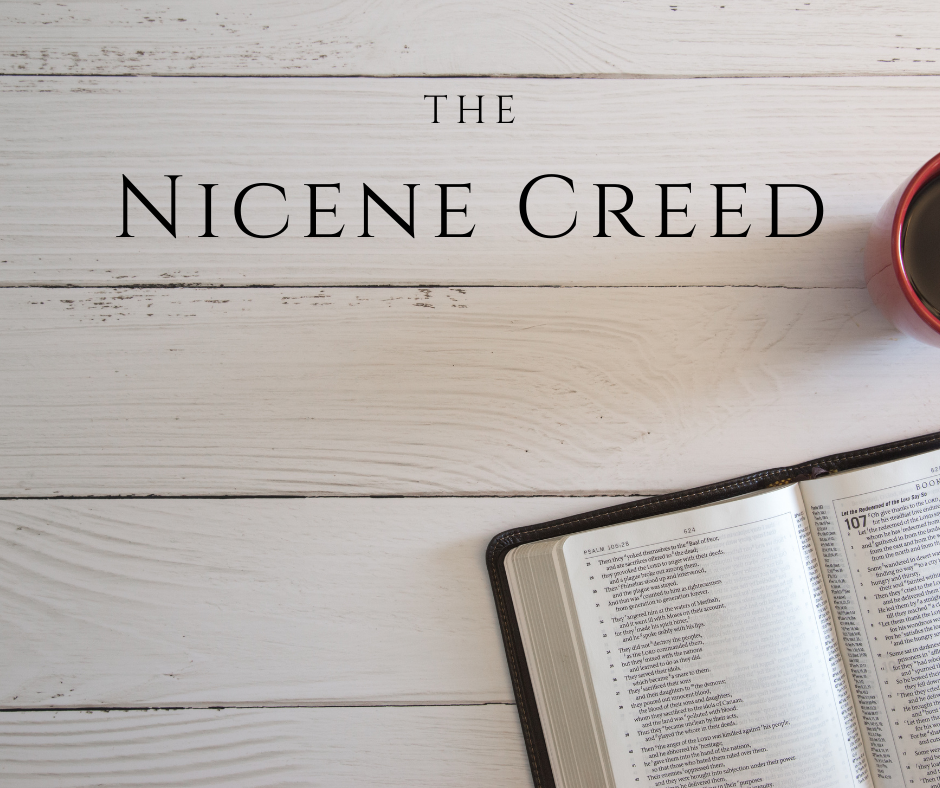He rose again
We say things frequently enough it becomes standard in our speech. Christ rose from the grave. We have heard this phrase multiple times, but I believe we have lost how amazing this is. Christ physically died on the cross and was laid in the tomb, then rose again from the dead, after being in the heart of the earth for three days and three nights (Matt 12:40). At the resurrection, Christ ends his humiliation and is now exalted. He is
We are Beggars
Jesus, in Mark 4:35, told his disciples, "Let us go across to the other side." Chapter five begins when they have reached the other side, to the country of the Gerasenes. The end of this passage explains that Jesus went back to the other side (Mark 5:21). Jesus and his disciples are not merely going to a different city. They cross over the sea of Galilee. The region is disputed but is located on the east side of the sea
The third day
One question that comes up is the timing of the final days of Jesus. Critical scholars mention the apparent contradiction in the Bible between the Gospel accounts (such as the timing of the ripping of the temple curtain (Luke 23:45 and Mark 15:38). One apparent contradiction is the prophecy of Jesus in Matthew 12:40, "For just as Jonah was three days and three nights in the belly of the great fish, so will the Son of Man be three days
Great Fear
Mark 4:35-41 After Jesus had taught the crowd, a change in the scene occurs. As we have seen in the past, Mark can follow a crowd section followed by Jesus withdrawing with or without his disciples (Mark 1:35-39, 3:13-18). The author continues to point out the various people who interact with Jesus and their opinions. But what about the closest followers, the ones who Jesus explains the meanings of the parables to, who have been given the secret of the kingdom
And was buried
I have often mentioned that we often look at Christ's death on the cross as the only thing that Christ came to earth to achieve for us. It is an essential part of his earthly ministry but not the only part of his ministry on earth. The burial of Jesus is an integral piece of the gospel message (1 Cor 15:3-4, Acts 13:26-31). The burial is mentioned in all of the Gospel accounts (Mt 27:57–61; Mk 15:42–47; Lk 23:50–56; Jn
The Lamp, a measure, a sower and a seed.
The parable of the sower is one significant parable that helps us understand the other parables. However, the next section of Scripture gives us three or four parables, depending on how you count them. These strings of parables seem to be more proverbial than a logical thought progression. It appears to be a seminarian's first sermon with disconnected thoughts and no central point. Previously Jesus had said he speaks in parables to conceal, but now he is saying nothing is
And Suffered
Christ’s human nature truly suffered while on earth. Pain is hard for some of us to be able to imagine. Some people live with pain every hour of every day. However, we all at some point know what it is like to hit our hands with a hammer, or stand on a Lego block, or jamb our fingers in a door. This pain is sharp yet brief. The reality is that Christ was not superhuman; the Godhead and Manhood were
One Seed
Mark 4:20 The parable of the sower is an important parable to understand because Jesus explained to his disciples if you do not understand this parable, how you will understand any parables (Mark 4:13). Previously we have seen the first three seeds. Although they fall in different places and have different outcomes, ultimately, the result is the same. No farmer or gardener only plants seeds so that thorny plants can choke them. No person sows seed into the ground to feed
Under Pontius Pilate
As we consider the crucifixion, we notice a statement in the Nicene Creed that is quite different from the rest of the creed. The creed explains that Christ was crucified for us ‘under Pontius Pilate.’ This is the only historical statement made in the creed, The Son of God is begotten from the Father before all ages. We know the Political Leaders at the time of Christ’s birth (Luke 2:1-3, Matt 2:1ff). Why is this political reference made? The birth





